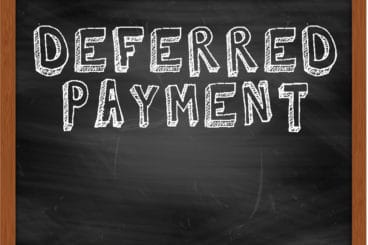
Mortgage insurers in Canada dread extending six-month Covid payment deferrals, anticipating with horror what could happen if the payment holidays end before the economy has recovered.
More than 760,000 borrowers have deferred or skipped a mortgage payment during the pandemic, which is equal to around 16% of mortgages in bank portfolios, according to the Canadian Bankers Association.

Access deeper industry intelligence
Experience unmatched clarity with a single platform that combines unique data, AI, and human expertise.
Eligible customers are able to defer their mortgage payments for up to six months in many cases, but home-loan insurers appear resistant to extensions beyond six months.
The Crown corporation told the Canadian Credit Union Association (CCUA) last month that a half-year break was likely enough.
“At this time, there are no plans to extend the deferral period,” the Canada Mortgage and Housing Corporation (CMHC) is quoted as saying in response to a credit-union question.
Concerns about a debt hangover
The country’s six largest lenders, taken together, have deferred more than 16% of the mortgages in their portfolio so far, according to a report.

US Tariffs are shifting - will you react or anticipate?
Don’t let policy changes catch you off guard. Stay proactive with real-time data and expert analysis.
By GlobalDataRoyal Bank of Canada, TD Canada Trust, Bank of Montreal, Canadian Imperial Bank of Commerce, Scotiabank and National Bank of Canada have said they would allow eligible customers to postpone mortgage payments for up to six months.
In addition, Canadians have also been accessing pre-existing skip-a-payment options that usually allow for one payment deferral per year on certain mortgages.
The sheer number of borrowers who have availed themselves of payment deferrals has raised concerns about what happens if those debt holidays end before the economy has bounced back.
A debt hangover could also curb Canada’s overall economic recovery, as money that could be spent elsewhere is channelled once more towards loan repayments.
Covid-19 Default Management Playbook
The Canada Mortgage and Housing Corporation and fellow mortgage-default insurers Canada Guaranty Mortgage Insurance and Genworth MI Canada have created a “Default Management Playbook,” according to the CCUA.
A copy of the document that was posted by the credit-union group said it aims to help lenders to help borrowers — although not necessarily with a deferral.
“In developing the Covid-19 Default Management Playbook, the insurers did not feel that further extensions were a viable option on a global basis,” CMHC said in its response to the credit unions.
“If the borrower cannot be helped with the existing (default management) tools (stable source of some revenue), then there are few options as there are no government programs currently available.”
A spokesperson for the Department of Finance said the government would continue to monitor “all developments relating to the Covid-19 outbreak and the economic disruption caused by the pandemic.”
Stepping up loss-mitigation activities
Lenders have been seeing deferral numbers drop, though, amid the recent economic reopening.
Genworth Canada, the country’s largest private-sector residential mortgage insurer, earlier this month said it expects the “vast majority” of deferrals will end with borrowers returning to their regularly scheduled payments.
“However, the Company expects that a subset of insured mortgages with payment deferrals will likely end up in default after the deferral period ends,” Genworth said in its latest financial disclosures.
“As a result, the Company and its lenders have plans in place to increase loss mitigation activities to address the increase in reported delinquencies that is expected starting in the fourth quarter of this year,” Genworth said.
CMHC and the other mortgage-default insurers may not currently be planning on a blanket extension of the six-month deferral period, but borrowers could still postpone payments for up to four months with a pre-existing default-management tool for lenders.







